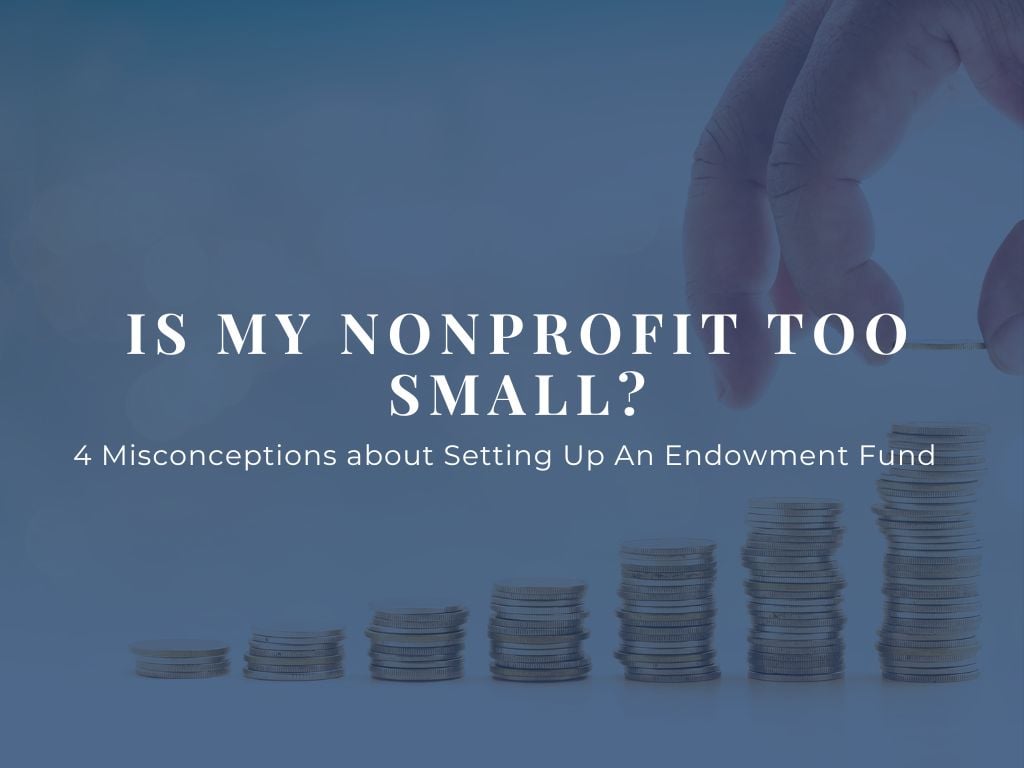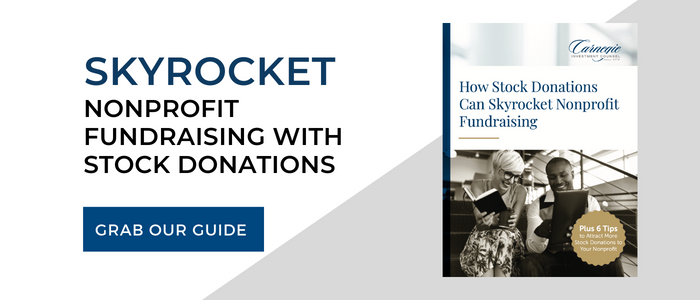
Are you a small nonprofit wondering if you're too small to establish an endowment fund? The truth is endowments are not only for large organizations. Small nonprofits can benefit greatly from setting up a nonprofit endowment fund. In this blog post, we discuss the misconceptions small nonprofits have about endowments and the benefits they can provide for financial stability, sustainability and attracting donors.
Can Small Nonprofits Have an Endowment Fund?
Yes, small nonprofits can have an endowment fund. An endowment fund is a type of investment fund that is set up and managed by a nonprofit organization. The funds in an endowment are invested, and the organization uses the income generated by the investments to support its operations and programs. While endowments are typically associated with larger organizations, smaller nonprofits can also create and manage endowment funds as a way to secure long-term financial stability.
Benefits of Setting Up an Endowment Fund for a Small Nonprofit
There are many ways small nonprofits can benefit from an endowment fund:- Financial stability: An endowment can provide a steady stream of income for a nonprofit, allowing them to plan for the long term and make strategic decisions without worrying about the uncertainty of yearly fundraising.
- Sustainability: An endowment ensures that a nonprofit will be able to continue its mission, even in times of economic downturns or changes in funding priorities.
- Attracting donors: An endowment can be an attractive fundraising tool for donors who are looking for a way to make a lasting impact. Donors can make gifts to an endowment with the knowledge that their contribution will be invested and managed to benefit the nonprofit for years to come.
- Professionalism: Having an endowment can demonstrate a level of stability, maturity and professionalism that can help a nonprofit gain the trust and confidence of potential donors and partners.
Even if a nonprofit is small, it can still benefit from setting up an endowment fund. An endowment can help a small nonprofit build a strong foundation for the future and attract donors who are looking to make a lasting impact. Furthermore, an endowment can help a small nonprofit demonstrate its commitment to long-term sustainability and stability, which can be important in building trust and confidence with potential donors.
4 Common Misconceptions Small Nonprofits Have About Endowments
- Endowment funds are only for large nonprofits: Many small nonprofits believe that endowment funds are only for large organizations and that they are not capable of building an endowment. However, an endowment can be established and grown by any nonprofit, regardless of its size.
- Endowment funds are only for long-established nonprofits: Some small nonprofits believe that endowment funds are only for charitable organizations that have been around for a long time and that have a proven track record of success. However, an endowment can be established at any stage of a nonprofit's development, and it can provide important benefits even in the early stages of growth.
- Endowment funds are too restrictive: Some small nonprofits believe that endowment funds are too restrictive and that they will not be able to use the funds for the purposes that they need. However, an endowment can be established with specific guidelines and restrictions that align with the nonprofit's mission and goals. You should work with your donors and nonprofit investment manager to outline the parameters of the endowment when creating it.
- Endowment funds are too difficult to establish and manage: Some small nonprofits believe that establishing an endowment is too difficult, time-consuming and expensive. However, establishing an endowment can be relatively simple and straightforward, especially with the help of professional advisors to assist with management. Furthermore, endowment funds can be established with small contributions and grow over time.
Setting Up an Endowment Fund May Be a Great Move for Your Nonprofit
Small nonprofits should not be discouraged from establishing an endowment fund due to misconceptions about their size or ability to do so. The benefits of financial stability, sustainability and attracting donors can greatly impact the future of any nonprofit. It's important to seek professional advice and to understand that endowment funds can be established with specific guidelines and restrictions that align with the nonprofit's mission and goals.
As a leader in the nonprofit sector, you know that financial stability is crucial to achieving your mission. Let Carnegie Investment Counsel, an SEC Registered Investment Advisor, partner with you to ensure that your organization is on the path to success. Book a meeting with us today to learn more.
Looking for a Financial Advisor for Your Nonprofit?
Contact us if you are currently looking for a second opinion or help with investment management. We are happy to schedule an introductory meeting at your convenience.



